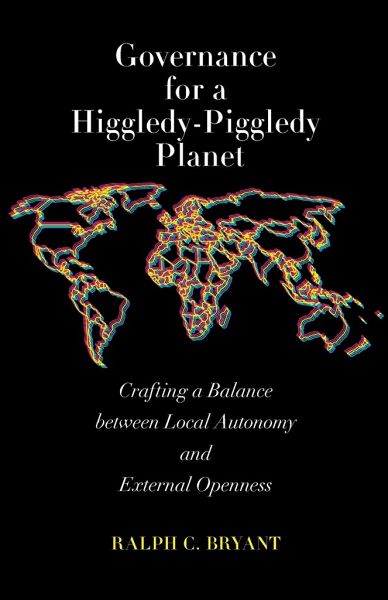
Governance for a Higgledy-Piggledy Planet
Crafting a Balance between Local Autonomy and External Openness
Versandkostenfrei!
Versandfertig in 1-2 Wochen
37,99 €
inkl. MwSt.
Weitere Ausgaben:

PAYBACK Punkte
19 °P sammeln!
" Public debate is often mired in superficial arguments about "globalization." This insightful book by economist Ralph C. Bryant instead emphasizes that the world's nations need to craft better middle-ground compromises to improve governance and manage increasing integration. Individual nations, Bryant argues, should fashion a balance between local autonomy and external openness, avoiding the extremes of rigid localism and unfettered openness. And nations need to act together collectively. Cooperative governance can encourage orderliness that mitigates disarray undermining mutual goals. "














